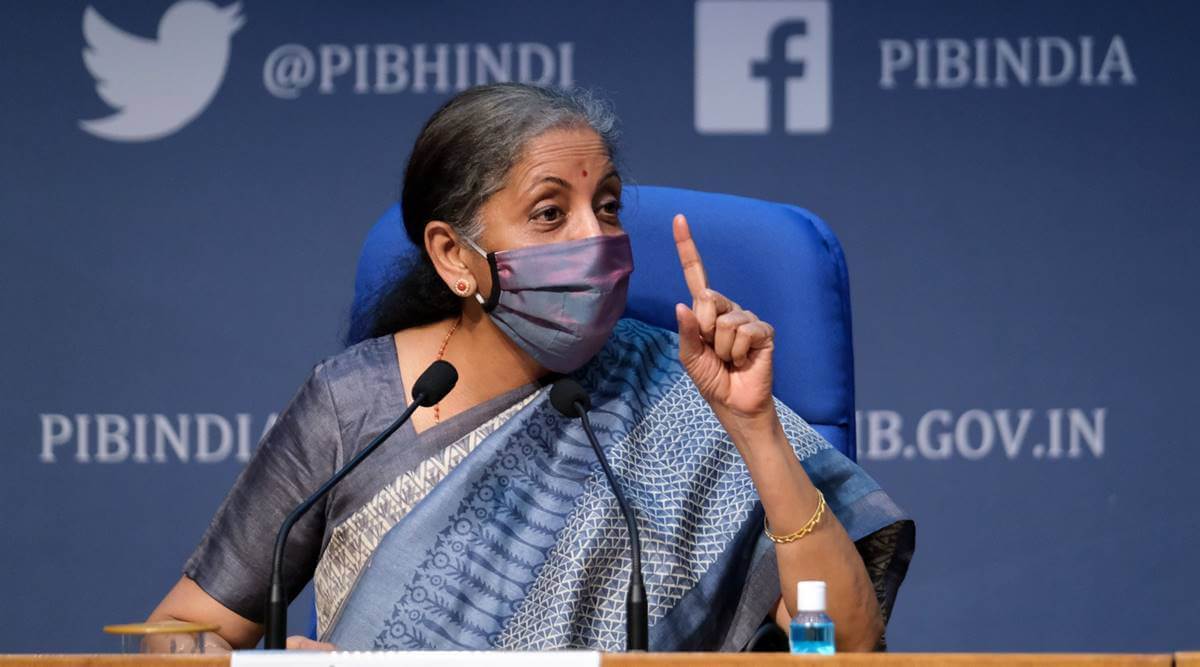Earlier today, Indian Finance Minister Nirmala Sitharaman announced the Union Budget, which was solely presented in a digital format for the first time. While this is her third budget announcement as the country’s finance minister, it comes amidst the unprecedented challenges posed by the COVID-19 pandemic. During the speech, she said that the Narendra Modi-led government had a total expenditure of Rs. 34.50 lakh crore in the Financial Year of 2020-21, which was higher than the estimated Rs. 30.42 lakh crore, primarily due to the unforeseen expenditures instigated by the pandemic.
In the introductory message of her speech, Sitharaman acknowledged the “unprecedented contraction” being faced by the global economy, specifically following the lockdown. However, she applauded the government’s efforts in cushioning the impact through policies such as the Pradhan Mantri Garib Kalyan Yojana, which aims to provide food grains, cooking gas, and even cash to millions of families. In light of the challenges that the Indian economy currently faces amidst the ongoing pandemic, she presented the Union Budget, which, according to Sitharaman, “provides every opportunity for our economy to raise and capture the pace that it needs for sustainable growth.”
Her speech began with a detailed vision for Aatmanirbhar Bharat, something that the Indian government has focussed on extensively over the past year. She highlighted that this campaign would rest on six pillars: (i) Health and wellbeing, (ii) Physical & Financial Capital, and Infrastructure, (iii) Inclusive Development for Aspirational India, (iv) Reinvigorating Human Capital, (v) Innovation and R&D (Research and Development), and (vi) Minimum Government and Maximum Governance. Through Part A of the budget, she outlined a plan to strengthen Indian sectors on these fronts.
In light of the ongoing pandemic, Sitharama announced the establishment of the PM Aatmanirbhar Swasth Bharat Yojana that will dedicate Rs. 64,180 towards the development of “primary, secondary, and tertiary health system” over the next six years. Moreover, a 137% hike in the health and wellness budget was also introduced. She said, “I have provided Rs. 35,000 crore for Covid-19 vaccine in this year 2021-2022 … I am committed to provide further funds if required. So the Budget outlaw for health and well-being is Rs. 2,23,846 crore in 2021-2022, as against only Rs. 94,452 crore (in 2020-21).” This increase will be dedicated to promoting a “three-pronged, holistic approach,” which will include “preventive care, curative care, and well-being.”
In the second part of her speech, she addressed the need to adapt to a “post-pandemic, new world order” that requires India to emerge as a leader and occupy a prominent position. In this context, she envisioned a tax system that is transparent, efficient, and promotes investments and employment in India. Nevertheless, she called for a system that puts “minimum burden” on the country’s taxpayers. Consequently, she announced that senior citizens above the age of 75 would now be exempt from filing their income tax returns and that the bank would deduct the necessary tax amount from their income directly. She further announced the reduction of the time-limit for re-opening tax assessments from six years to three years. She also announced an “Affordable Housing / Rental Housing” scheme that furthers the “Housing for All” vision of the Indian government, which aims to provide affordable housing to all citizens.
Moreover, she spoke extensively of privatising central public sector enterprises. During her speech, she said that the government intends to maintain “bare minimum” presence in four sectors, namely, atomic energy, space and defence, transport and telecommunications; power, petroleum, coal, and other minerals; and banking, insurance, and financial services. She said that all other sectors will be privatised. Analysts are calling this the largest push for privatisation after the Atal Bihari Vajpayee government, who had announced the intention to bring down the government’s involvement in “non-strategic firms” to 50% in 1998.
Finance Minister Sitharaman Presents Budget, Boosts Health and Wellness Budget by 137%
Finance Minister Nirmala Sitharaman introduced the Union Budget, announcing a hike in the health and wellness budget and an increased focus on privatisation and India's Aatmanirbhar Bharat vision
February 1, 2021

SOURCE: BLOOMBERG
